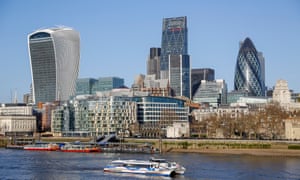Brexit could wipe 20% off the pound amid referendum turmoil, warns HSBC
Warning comes as the pound falls below $1.39 against the dollar

The pound tumbled below $1.39 for the first time in seven years on Wednesday as analysts warned that a vote to quit the European Union would severely damage the UK’s growth prospects.
Sterling dropped to $1.3883 and also suffered against the euro after HSBC issued one of the starkest warnings yet of the dire consequences from a Brexit vote.
Analysts at the bank said sterling could lose another 20% of its value against the US dollar, pushing its value towards $1.10 – a level not seen since 1985 when the miners’ strike was in full swing.
A steep rise in the cost of imports following the currency’s collapse would send inflation spiralling, forcing the Bank of England to raise interest rates.
The analysts warned that the ensuing turmoil would knock 1.5 percentage points off GDP growth in 2017, losing almost all the 2.3% growth rate the Bank of England expects should the status quo be maintained.
“Our central case in the event of a vote for Brexit is that uncertainty grips the economy. This could take around 1.0-1.5 percentage points off the GDP growth rate by the second half of 2017. This would push our 2017 growth forecast, currently 2.3%, into the 0.8-1.3% range,” the analysts said.
“And if sterling were to fall by around 15-20% (as our currency strategists predict), UK inflation could rise by up to 5 percentage points (our end-2017 inflation forecast is 1.8%). In the event of a vote for Brexit, concerns about deflation could swiftly give way to worries of stagflation.
Last year analysts at Morgan Stanley said a Brexit vote would expose the country to a “referendum shock” and a “flirt with recession”.
Analysis by the Centre for Economic Performance at the London School of Economics has also dismissed the Leave campaign analysis that the UK economy would be unaffected.
It considered an “optimistic scenario” with small increases in trade costs between the UK and the EU, and a “pessimistic scenario” with larger increases.
“In the optimistic case, Brexit reduces UK income by 1.1% of GDP. In the pessimistic case, UK income falls by 3.1%, or £50bn a year.”
More business leaders lined up on Thursday to voice their concerns that the UK economy will be a significant casualty of a decision to leave the EU, including Sir Martin Sorrell, chief executive of the advertising firm WPP.
Sorrell said Britain faces “a period of unstability and uncertainty” ahead of June’s vote, and confidence is already being hit.
Speaking on Bloomberg TV, he said he shared concerns over the extent of EU bureaucracy. However, he is still worried about the consequences of an out vote, calling Brexit a “black hole”.
The continent is fertile ground for WPP, which owns the agencies Ogilvy & Mather and Young & Rubicam, and counts Germany as its fourth largest market and France as its seventh largest.
“I think it is really important to be inside the tent, trying to reform and change Europe, rather than being outside the tent in a completely unknown situation, where it will be very hard for several years to work out Britain’s role in the world,” he said.
WPP’s clients are “at best neutral, and at worst highly negative” about the referendum, he added.
“Clients will be postponing investment decisions, postponing trade decisions and considering alternative scenarios – like we all are – about what we will do if the country decides to leave the EU.”
Tom Enders, chief executive of Airbus, the planemaker, said he didn’t believe its UK operations would benefit from Britain leaving the EU.
He told a news conference: “If Britain leaves, I cannot imagine that this would have positive consequences for our competitiveness in Britain.”
On Tuesday Airbus – which is headquartered in France – hosted senior Labour MP Alan Johnson, as he claimed that 50,000 engineering jobs could be lost if Britain quits the EU.
Man Group chief executive Manny Roman also weighed in to the debate: “Whilst it is hard to say exactly what the impact would be, the uncertainty and potential negative consequences of Brexit for the UK’s economy should not be underestimated.”
[Source:- Gurdian]
